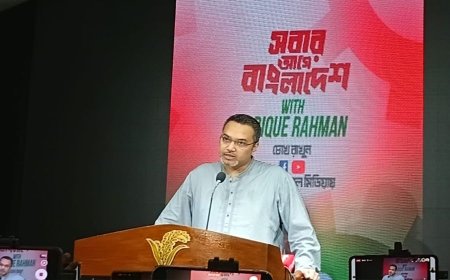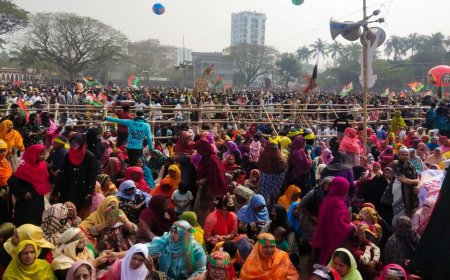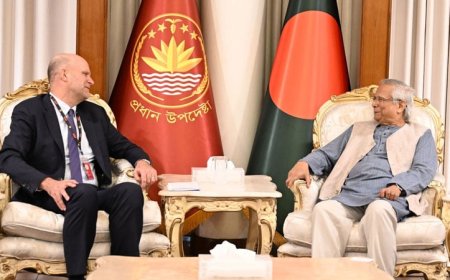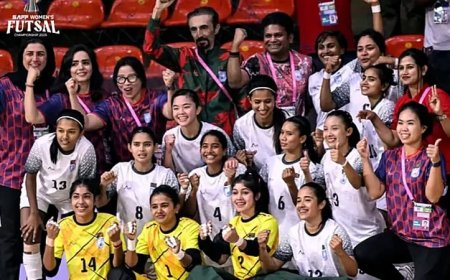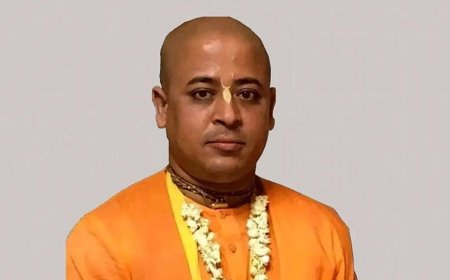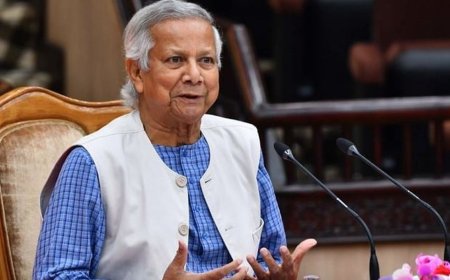Nahid: The Awami League will not be permitted to return to politics during our lifetime
Nahid: The Awami League will not be permitted to return to politics during our lifetime

- There are demands for comprehensive reforms to avert the rise of authoritarian leaders like Sheikh Hasina in the future.
- It is argued that allowing the Awami League to return to power would dishonor the martyrs of the recent uprising.
Information and Broadcasting Adviser Md Nahid Islam stated that the Awami League will not return to politics in the same manner or ideology as before. He emphasized, “If they do, it would betray the martyrs of the uprising. As long as we are alive, we will prevent this from happening.”
Nahid Islam made these comments during a discussion titled "Government of the Uprising: Expectations and Achievements," organized by the Jahangirnagar University chapter of the Anti-Discrimination Student Movement at the Zahir Raihan Auditorium on Wednesday afternoon.
Regarding the Awami League's political role, Nahid Islam remarked, “There is no doubt that the ousted Awami League cannot participate in politics in the new Bangladesh. If we label the Awami League as a fascist party, as we consistently do, how can it engage in democratic politics? A party labeled as fascist should not have the right to participate in politics. Those who think otherwise should stop referring to it as fascist.”
He continued, “Sheikh Hasina did not resign in an orderly fashion; she was deposed by the students and people of Bangladesh. You might wonder why a government was still formed under the Constitution. At that time, we prioritized state security and stability. Although the President and Constitution were rendered ineffective through the uprising, we took on responsibility under the President to maintain stability. However, we remain open to reconsidering that arrangement if necessary.”
Nahid Islam emphasized the difference between an interim government and a caretaker government, stating, “It is incorrect to compare this interim government, which emerged from the uprising, to a caretaker government. A caretaker government temporarily manages responsibilities and organizes elections for power transfer. If this government fails to meet the uprising's expectations or implement fundamental reforms, the pathway to democratic transformation will be obstructed. Essential reforms, including a political settlement, are needed to define the state’s nature, determine who can participate in politics, and establish the state’s ideology and national culture.”
He added, “We did not fight just for a change in leadership, which has cost so many lives. Our aim is not merely to replace Sheikh Hasina with Dr. Yunus. We seek systemic change to prevent any future leader from becoming another Sheikh Hasina. The government must ensure this.”
Nahid Islam explained that the uprising, which lasted 36 days, initially focused on demands for reforms in the government job quota system rather than being a political movement.
He argued that focusing solely on these 36 days overlooks the broader context of the past 16 years, during which Bangladesh began to depoliticize under the One-Eleven government.
He pointed out that this government facilitated the rise of Awami fascism by reinstating the Awami League, allowing it to gain a parliamentary majority, amend the Constitution, and gradually consolidate power. This resulted in a manipulated electoral process, denial of voting rights, and a human rights crisis characterized by enforced disappearances, killings, and suppression of peaceful movements.
Akhtar Hossain, member secretary of the Jatiya Nagorik Committee, stated that drafting a new constitution has become a legal necessity. He referenced Article 7(B) of the current constitution as a basis for invalidating the existing one and identified President Shahabuddin as an obstacle to constitutional reform.
Arif Sohel, the newly appointed Member Secretary of the Anti-Discrimination Movement’s Central Committee, advocated for the annulment of the 1972 Constitution, criticizing its lack of public consensus and the involvement of leaders who fled to India during the Liberation War, arguing they were better suited to drafting Pakistan’s constitution.
In contrast, Dr. Zahed Ur Rahman, a prominent member of the Constitution Reform Committee and political analyst, described Sheikh Hasina's removal as a mass uprising and opposed any rewriting of the constitution.
Jahangirnagar University Vice-Chancellor Professor Mohammad Kamrul Ahsan underscored the importance of the reform process, stating, "If not now, it won’t be possible later," and indicated that the primary objective of the reform process should be to organize fair and inclusive elections.
During the same event, the university’s Pro-Vice-Chancellor (Education) Professor Mahfuzur Rahman remarked that university reforms would complement state reforms.
What's Your Reaction?







